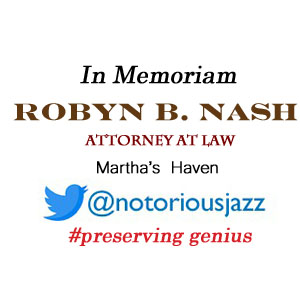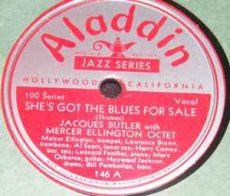
Daily Dose Of Jazz…
Jacques Butler was born on April 29, 1909 in Washington, D.C. but didn’t pick up the trumpet until his late teens. He began playing professionally with Cliff Jackson and Horace Henderson in New York City, then joined Marion Hardy’s Alabamians in 1931 for a year.
Leading his own ensemble in New York and touring from 1934-1935, Jacques also made recordings with Willie Bryant before relocating to Europe in 1936, where the two performed together until 1939. During that period he played with Frank “Big Boy” Goudie as well as with his own bands. He would tour Scandinavia before WWII and in 1940 he became well known in the Norwegian jazz community, and while visiting Oslo he recorded one 78 rpm. Returning to New York City that same year he played and recorded with Mercer Ellington, Art Hodes, Mezz Mezzrow, and Bingie Madison.
After a brief stay in Toronto he moved back to Europe in 1950, remaining there until 1968 as a regular at the La Cigale club in Paris, France. He appeared in the 1961 Paul Newman/Sidney Poitier film Paris Blues. In the 1970s he came home to the States and was seen working often in New York City, as a sideman with Clyde Bernhardt among others, and in the studio.
Trumpeter and vocalist Jacques Butler, who was sometimes listed as Jack, died in 2003. The date of his death is unknown.
More Posts: bandleader,history,instrumental,jazz,music,trumpet,vocal
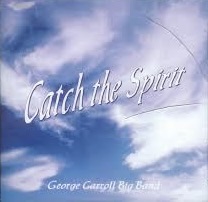
Daily Dose Of Jazz…
Eldon Payne was born in Morristown, Tennessee on April 25, 1957. He graduated cum laude from the University of Tennessee in Knoxville with a B.S. in Business Administration in 1979. Then he moved to Tampa, Florida in the spring of 1980.
Retiring from Delta Air Lines with twenty five years of service in 2008, Eldon performed during that period with the University of Tennessee Campus Band, Tampa Bay Buccaneer Band, Shades of Blue, Boulevard Jazz Orchestra, The Mostly Pops Orchestra, Helios Jazz Orchestra, Cigar City Big Band, Swing Sound Orchestra, Frankie D. New York Orchestra, Clearwater Community Jazz Band, Sun City Center Big Band, George Carroll Big Band, Gulf Bay Big Band, Ten O’clock Big Band, Frank Parsons Band, Ed Geimer Big Band, Encore IV Big Band, and The Sarasota Jazz Project.
Over the course of his career Payne has performed at several Florida clubs and festivals as well as backing the likes of Margo Rey, Denise Moore, Kathy Kosins, Michael Lynche, Bryan Hughes, Lorri Hafer, Chuck Wansley, Whitney James, Alexis Cole and the late Kevin Mahagony.
Trombonist Eldon Payne, who never recorded as a leader, continues to perform and record as a sideman and studio musician.
More Posts: history,instrumental,jazz,music,trombone
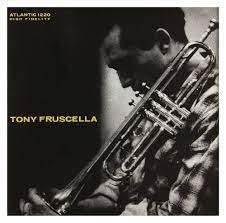
Daily Dose Of Jazz…
Tony Fruscella was born February 4, 1927 in Orangeburg, New York and grew up in Greenwich Village, Manhattan, New York. He played in an Army band early in his career. He worked as a sideman in the 1950s for Charlie Barnet, Lester Young, Gerry Mulligan, and Stan Getz.
He played with Don Joseph later in the 1950s, but by the early 1960s his problems with drug abuse and alcoholism prevented him from performing. Fruscella released one album, I’ll Be Seeing You in 1955, as a leader during his lifetime. It was recorded with Allen Eager and Danny Bank for Atlantic Records.
He married singer Morgana King, however it ended in divorce after nine years. Trumpeter Tony Fruscella died on August 14, 1969 at 42 years old.
More Posts: bandleader,history,instrumental,jazz,music,trumpet
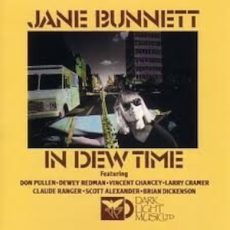
Daily Dose Of Jazz…
Claude Ranger was born in Montréal, Canada on February 3, 1941 and studied drums briefly with several teachers and arranging with Frank Mella. Beginning his career with Montréal show bands, he was a leading figure among the city’s jazz musicians by the mid-1960s.
A sideman to Lee Gagnon, Pierre Leduc, and Ron Proby among others, Claude led the bands heard on the CBC’s Jazz en Liberté. He was a member of Aquarius Rising with Brian Barley, Michel Donato and Daniel Lessard from 1969 to 1971. Moving to Toronto, Canada he lived there for fifteen years beginning in 1972. It was here that Claude was a member of the Moe Koffman Quintet and accompanied Canadian and U.S. musicians when they came through the city, such as, Lenny Breau, George Coleman, Larry Coryell, Sonny Greenwich, James Moody, Doug Riley, Don Thompson, and Phil Woods.
His own bands appeared at the Music Gallery, Jazz City, the Festival International de Jazz de Montréal (FIJM) and the Ottawa International Jazz Festival. A Ranger quintet was a finalist in the 1986 FIJM, receiving a special jury citation for his drumming. Relocating to Vancouver, Canada he served as a mainstay of the du Maurier International Jazz Festival, again as an accompanist to Canadian and U.S. musicians and as a leader of his own groups.
West Coast musicians Ron Samworth, Clyde Reed, Bruce Freedman and drummer Dylan vander Schyff also influenced Claude’s career. He was considered a jazz musician and drummer with natural swing, in the bebop-based tradition of Max Roach. Displaying great stamina, he sometimes worked against the grain of jazz in Canada. His ensembles ranged from a trio to the 15 and 19-piece Jade Orchestra that debuted at the 1990 Vancouver festival.
Ranger played a role in Canada similar to the one created by Art Blakey in the US – that of a veteran musician whose bands served as an important platform for the development of younger players. His discography included recordings by Allen, Barley, Breau, Gagnon, Greenwich, Koffman, Riley, Thompson, Jane Bunnett, P.J. Perry, Herb Spanier, Michael Stuart, and U.S. musicians Dave Liebman, and Michael Munoz.
Drummer, composer, arranger, and teacher Claude Ranger continues to pursue his career in music.
More Posts: arranger,bandleader,composer,drums,educator,history,instrumental,jazz,music
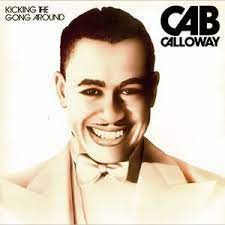
Daily Dose Of Jazz…
Cabell Calloway III was born on December 25, 1907 in Rochester, New York, on December 25, 1907 to two college graduates, his mother a teacher and church organist, and his father who worked as a lawyer and in real estate. The family moved to Baltimore, Maryland, in 1919 but soon after, his father died and his mother remarried.
Growing up in West Baltimore’s Druid Hill neighborhood Cab often skipped school to earn money by selling newspapers, shining shoes, and cooling down horses at the Pimlico racetrack where he developed an interest in racing and gambling on horse races. He ended up in Downingtown Industrial and Agricultural School, a Pennsylvania reform school run by his mother’s uncle.
Returning to Baltimore he resumed hustling, worked as a caterer while he improved his studies in school, and his mentors included drummer Chick Webb and pianist Johnny Jones. After graduating high school Calloway joined his older sister Blanche on tour for the popular black musical revue Plantation Days. He spent most of his nights in Chicago, Illinois clubs performing as a singer, drummer, master of ceremonies and as an understudy for singer Adelaide Hall. There he met and performed with Louis Armstrong, who taught him to sing in the scat style.
He established himself as a vocalist singing Ain’t Misbehavin’ by Fats Waller. The Thirties saw Cab’s orchestra permanently at the Cotton Club in Harlem, performed twice a week for radio broadcasts on NBC, and appeared on radio programs with Walter Winchell and Bing Crosby. He was the first Black American to have a nationally syndicated radio show and during the depths of the Great Depression he was earning $50,000 a year at 23 years old.
During the decade he recorded his most famous song, Minnie the Moocher, and became the first single record by a Black American to sell a million copies. He performed the song along with St. James Infirmary Blues and The Old Man of the Mountain, in Betty Boop cartoons of the same name.
His success with Minnie the Moocher and his relationship to the chorus earned him the nickname, The Hi De Ho Man. He performed a gliding backstep dance move called The Buzz, which some observers have described as the precursor to Michael Jackson’s moonwalk. He would go on to be featured in several films, and made his first Hollywood feature film appearance opposite Al Jolson in The Singing Kid in 1936.
His band included Ben Webster, Illinois Jacquet, Milt Hinton, Danny Barker, Doc Cheatham, Ed Swayze, Cozy Cole, Eddie Barefield, and Dizzy Gillespie. He entertained troops during World War II, hosted a weekly radio quiz show called The Cab Calloway Quizzicale and recorded songs full of social commentary. He appeared in the film Stormy Weather, one of the first mainstream Hollywood films with a black cast. Then he played the prominent role of Sportin’ Life in a stage production of Porgy and Bess. He continued to perform in movies and on stage throughout his career.
He published an autobiography and Cab Calloway’s Cat-ologue: A “Hepster’s” Dictionary, the first dictionary published by a Black American. It became the official jive language reference book of the New York Public Library.
Suffering a stroke at his home, vocalist, bandleader and actor Cab Calloway transitioned from pneumonia on November 18, 1994, at the age of 86, at a nursing home in Hockessin, Delaware.
More Posts: actor,bandleader,history,instrumental,jazz,music,vocal


